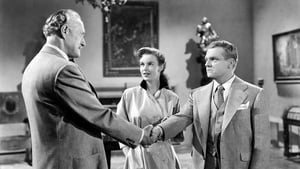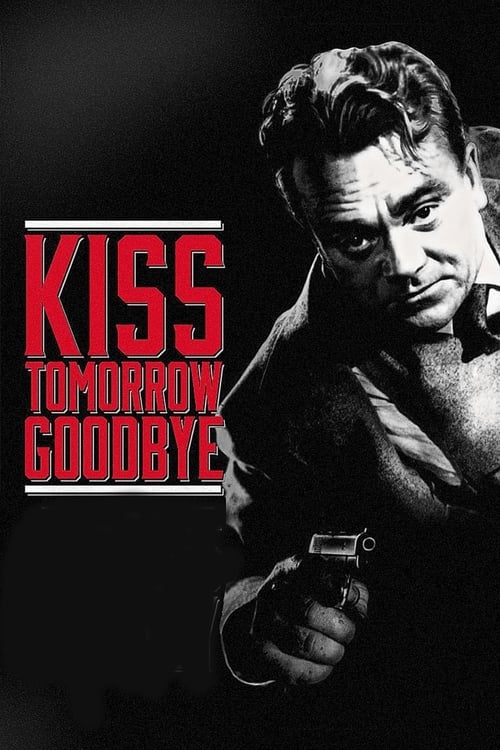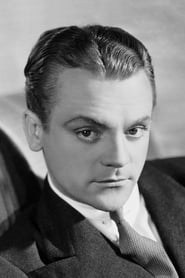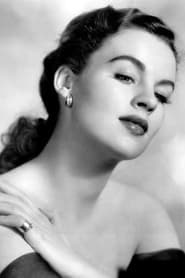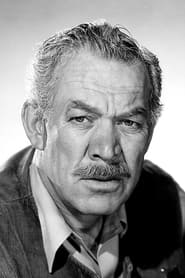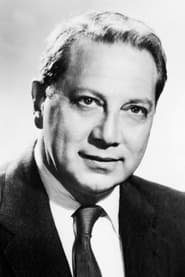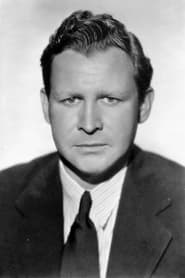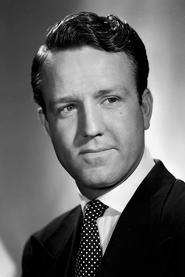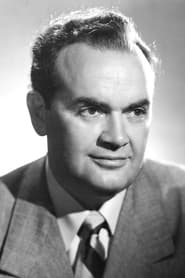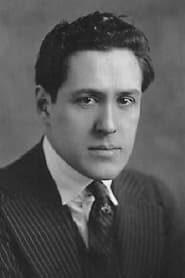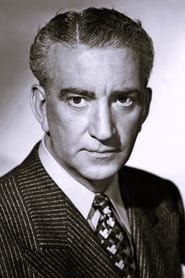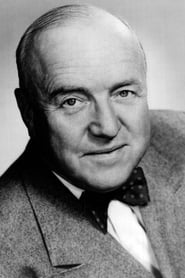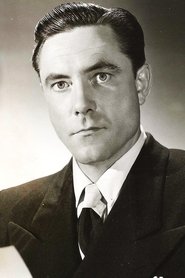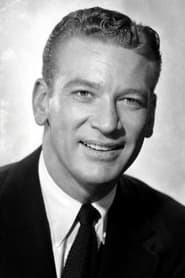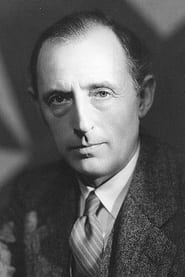Cast
View AllJames Cagney
as Ralph Cotter
Barbara Payton
as Holiday Carleton
Helena Carter
as Margaret Dobson
Ward Bond
as Inspector Charles Weber
Luther Adler
as Keith 'Cherokee' Mandon
Barton MacLane
as Lieutenant John Reece
Steve Brodie
as Joe 'Jinx' Raynor
Rhys Williams
as Vic Mason
Herbert Heyes
as Ezra Dobson
John Litel
as Police Chief Sam Tolgate
William Frawley
as Byers
Robert Karnes
as Detective Tom Gray
Kenneth Tobey
as Detective Tobey
Dan Riss
as District Attorney
Frank Reicher
as Darius 'Doc' Green
Crew
Director
- Gordon Douglas
Producer
- William Cagney
Reviews
John Chard
And you can kiss tomorrow goodbye!
Kiss Tomorrow Goodbye is directed by Gordon Douglas and adapted to screenplay by Harry Brown from the novel by Horace McCoy. It stars James Cagney, Barbara Payton, Helena Carter, Ward Bond, Luther Adler and Steve Brodie. Music is by Carmen Dragon and photography by J. Peverell Marley.
Ralph Cotter (Cagney), career criminal, escapes from prison and crudely murders his partner during the escape. Hooking up with Holiday Carleton (Payton), the oblivious sister of the slain partner, Cotter quickly gets back into a life of crime and violence. Will his evil deed stay a secret? How long can he keep the corrupt coppers under wraps? And is his "other" romantic relationship with Margaret Dobson (Carter) doomed to failure?
Kiss Tomorrow Goodbye seems to have gotten lost in the slipstream of White Heat which was released the previous year. An undoubted classic of the gangster/crime genre, and featuring one of Cagney's greatest acting performances, White Heat has unsurprisingly dwarfed many other below par genre entries. However, while it doesn't equal the searing ferocity of White Heat, both in tone and character performance by Cagney, Kiss Tomorrow Goodbye is a seriously hard as nails movie. Energetic from the off, film is often brutal and cynical and awash with potently memorable scenes, with some deemed as being just too much, resulting in the film even being banned from theatres in Ohio!
Female or a cripple, it matters not to the menacing force of nature that is Ralph Cotter.
Gordon Douglas was a multi genre director, unfussy and able to keep things taut, he gets some super performances from the cast while never letting the pace sag. Cagney is a given, give him this sort of character and let him run with it and the rewards are plenty, though to an extent it's arguably a detriment to the film as a whole that it can't match Cagney's blood and thunder show. that said, Bond (big bad corrupt copper), Brodie (Cotter side-kick) and Adler (shifty lawyer) do shine through with imposing in character turns.
Of much interest in the narrative is the dual lady characters that are firmly in Cotter's life. Both are very different from each other, and this gives the film a double whammy of femme fatales in waiting. Payton takes the honours, in what is the best written part in the film, where her Holiday Carleton is a good girl drawn in to a murky life by a bad man. While on the other side of the fence is Carter as bored rich girl Margaret Dobson, she likes fast cars and dangerous men, and this allows the actress to deftly sidle in to impact with potency in the smaller role.
Photography isn't out of the ordinary, where the pic cries out for some film noir styled psychological menace, and the music is standard boom and bluster for a crime picture. But really this is about Cagney's super performance and the grim thematics contained within the piece, where much like Ralph Cotter himself, it doesn't ever pull its punches. The deal well and truly sealed by an ending that firmly pulls the movie into the film noir universe. 8/10
Jan 8, 2019
CinemaSerf
James Cagney positively oozes malevolence in this gritty and dark thriller. He is "Cotter", a violent man who escapes from prison with the help the rather naive "Holiday" (Barbara Peyton). Pretty soon she is putty in his hands, swiftly followed by a couple of bent cops - and before we know it, he is running quite a successful little crime syndicate with a brand new identity. A chance encounter with the wealthy socialite "Margaret Dobson" (Helena Carter) tantalises the avaricious young man, despite warnings that her father was not a man to be trifled with. Soon, she too is captivated and when he leaves "Holiday" to take up with her, it starts to look much more perilous for all concerned. This story is told by way of a courtroom retrospective, but unusually that doesn't rob the film of much of it's jeopardy. We don't know quite what happened, and to whom, until quite an effective ending that I felt quite fitting. Cagney is on great form, and with Peyton and Carter offering us fine examples of women who are just so enamoured that they cannot see past this cruel and manipulative man. There is also a solid supporting cast - Ward Bond and Luther Adler amongst them, the dialogue is tightly scripted and delivered and the whole thing has a sleazy and grizzled outlook that I found appealing and appalling in equal measure. If you like a good film noir, then this ought to pass muster.
Sep 6, 2022
Thematic Analysis
Kiss Tomorrow Goodbye represents a fascinating example of Crime/Thriller cinema, offering viewers a unique perspective on the human experience and societal structures. The film's approach to its themes demonstrates a creative vision that distinguishes it within its genre.
Director Gordon Douglas brings their distinctive visual style to this film, continuing their exploration of themes seen in their previous works while adding new elements. Their approach to pacing and visual storytelling creates a viewing experience that rewards close attention.
Released in 1950, the film exists within a cultural context that now offers viewers historical perspective on the social issues of that era. Its reception demonstrates the diverse reactions to its artistic choices and its place in cinema history.
Did You Know?
- The production of Kiss Tomorrow Goodbye took approximately 32 months from pre-production to final cut.
- The final cut of the film runs for 103 minutes, though the director's initial assembly was reportedly 155 minutes long.
- The film contains approximately 1214 individual shots.
- Several scenes were filmed in multiple locations to capture the perfect setting.
- The director insisted on using practical effects whenever possible, reserving CGI for only the most necessary scenes.
Historical Context
- In 1950, when this film was released:
- The Cold War was intensifying, influencing global politics and culture.
- The civil rights movement was gaining momentum in the United States.
- The film industry was dominated by major studios, with independent cinema still in its early development.
How This Film Stands Out
While Kiss Tomorrow Goodbye shares thematic elements with other films in its genre, it distinguishes itself through its unique approach to storytelling, visual style, and character development.
Unlike The Desperate Hours, which takes a more conventional approach to its subject matter, Kiss Tomorrow Goodbye offers a fresh perspective through its innovative visual language and narrative structure.
While films like Beyond the Law and Gun Crazy explore similar territory, Kiss Tomorrow Goodbye stands apart through its deeper exploration of its central themes and more complex characterization.
This film's unique contribution to cinema lies in its bold artistic choices and willingness to challenge viewer expectations, making it a valuable addition to its genre.
Details
- Release Date: August 19, 1950
- Runtime: 1h 43m
